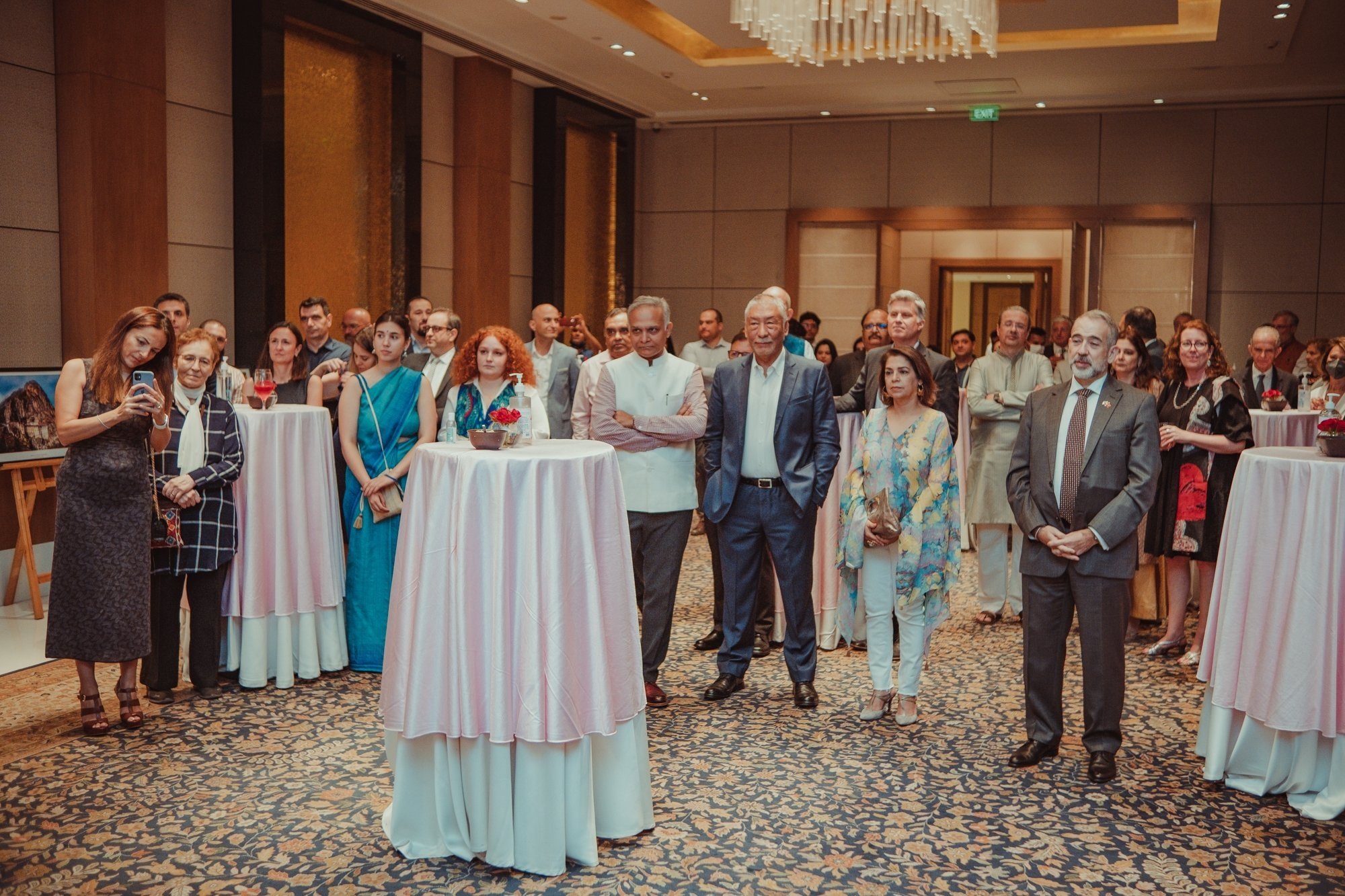© Turkuvaz Haberleşme ve Yayıncılık 2026
India and Turkey have sustained diplomatic relations for the past 75 years and share deep-rooted historical and cultural ties. Both countries continue to maintain the legacy and authenticity of their respective cuisines even in the modern world. Turkish recipes have come from royal kitchens and oral traditions. The representation of Turkish food and its distinctive cooking style is also inherited from the Anatolian, Seljuk and Ottoman eras, reflecting its history, values and beliefs.
Committed to preserving its history through food, Turkey carried out a weeklong celebration of Turkish cuisine internationally. In India, the Turkish Embassy observed a week of Turkish dishes from May 21-27. To celebrate the occasion, Turkey's Ambassador to India Fırat Sunel hosted several dignitaries and diplomats for breakfast and lunch. The event was held at the national capital New Delhi’s Oberoi hotel and was organized by the Turkish Presidency in association with the Culture and Tourism Ministry.
The attendees enjoyed Turkish cuisine with centuries-old traditional recipes at the event. Speaking at the occasion, Sunel said: “Food defines a large part of one’s origin and culture, and I personally find a lot of similarities between the Indian and Turkish cuisines and palates. As Turkish cooking is actually very heavily vegetarian, India is, in fact, one of the top countries with respect to demand for Turkish cuisine. Given the wonderful response that Turkish food has always received from Indians, we are extremely happy to host this special food festival in New Delhi, the heart of the country. Our bonding over food has also helped further strengthen the ties between India and Turkey over the years. We hope to introduce Turkish delicacies and delights to a larger number of Indians to better acquaint them with Turkey's food and culture.”

During Turkish Cuisine Week in New Delhi, the embassy served a range of dishes prepared by famous Turkish chef Erdal Ağat, who arrived from Turkey for the occasion. Let’s take a look at the spectacular menu of the event to get a glimpse of unique Turkish cuisine, which is a defining element of the country’s identity.
A variety of food was presented for breakfast starting with six variations of Turkish cheese, including chechil, tongue-shaped unsalted mozzarella, and kaşar, or kasseri, olives, honey, clotted creams, and seasonal vegetables such as cucumbers, tomatoes and green peppers. Besides, Turkish menemen – scrambled eggs mixed into sauteed tomatoes and peppers – eggs fried in butter and eggs cooked with cured meats such as sucuk or pastrami were also an essential part of the breakfast table.
The later extravagant menu comprised of meat and vegetarian dishes, starting with lentil soup and a beautifully balanced egg and lemon chicken soup. Then mezes, which are a selection of small tasty dishes shared at the table, were served. The mezes featured a vast selection, with the baby spinach and walnut tartar sauce standing out along with the carrots with yogurt.
Eggplant moussaka, okra chicken stew and lamb eggplant stew were also other one-pot dishes at the event. Chicken shish kebab resonated with Indian diners, while the Turkish-style roast lamb is a celebration of fuss-free food with tons of flavor. A flavourful shrimp casserole balanced the more placid stuffed peppers and zucchini and a saffron pilaf gave good company to red lentil köfte served dry with a salad. A light milk and fig pudding, sweet semolina halva and walnut semolina cookies in syrup rounded off the flavors that say Turkey in bold.
At the event, Sanjay Verma, undersecretary at India's External Affairs Ministry, also said: “Cultural belonging is also related to your connection to your meals. You may lose your language in the diaspora, but the last link to be lost is food.” In Margaret Mead’s words food provides us with something more symbolic than simply nutrition. Food is an important component of life, it unites people and retains one’s cultural identity.
And the Turkish Cuisine Week in New Delhi showed how Turkish cuisine, nurtured and shaped by the deep-rooted Anatolian history, stands out with its healthy characteristics, creative aspect and sustainable structures. Whereas the dishes utilized every element of products without waste to reveal an ecologically sustainable tradition of taste, they also displayed that Turkish cuisine is a world cuisine that responds to all dining styles with vegetarian, non-vegetarian and vegan meals. It was noteworthy to see that Turkish cuisine is committed to maintaining low or no food-wasting methods. People do not discard leftovers unless required. Therefore, Turkish meals are also called no-waste or wasteless cuisine. Chef Ağat said: “We make jams, pickles and desserts out of food people throw away in other countries.”
Similar events were organized simultaneously at different destinations around the world such as Los Angeles, Kuala Lumpur, Japan and Germany. In Japan’s Nagoya, the embassy offered its guests scrumptious delicacies. Drawing more attention to the diversity of Turkish cuisines, Turkish Consul Umut Lütfi Öztürk in Nagoya spoke about hospitality and solidarity, which are considered the symbols of their dining tables. Besides, he said, “This shows that our country is a land of tolerance.” In Kuala Lumpur, the festival was organized for the first time. While hosting the event, Ambassador Merve Safa Kavakçı said that from now on it will be marked every year under the leadership of first lady Emine Erdoğan.
